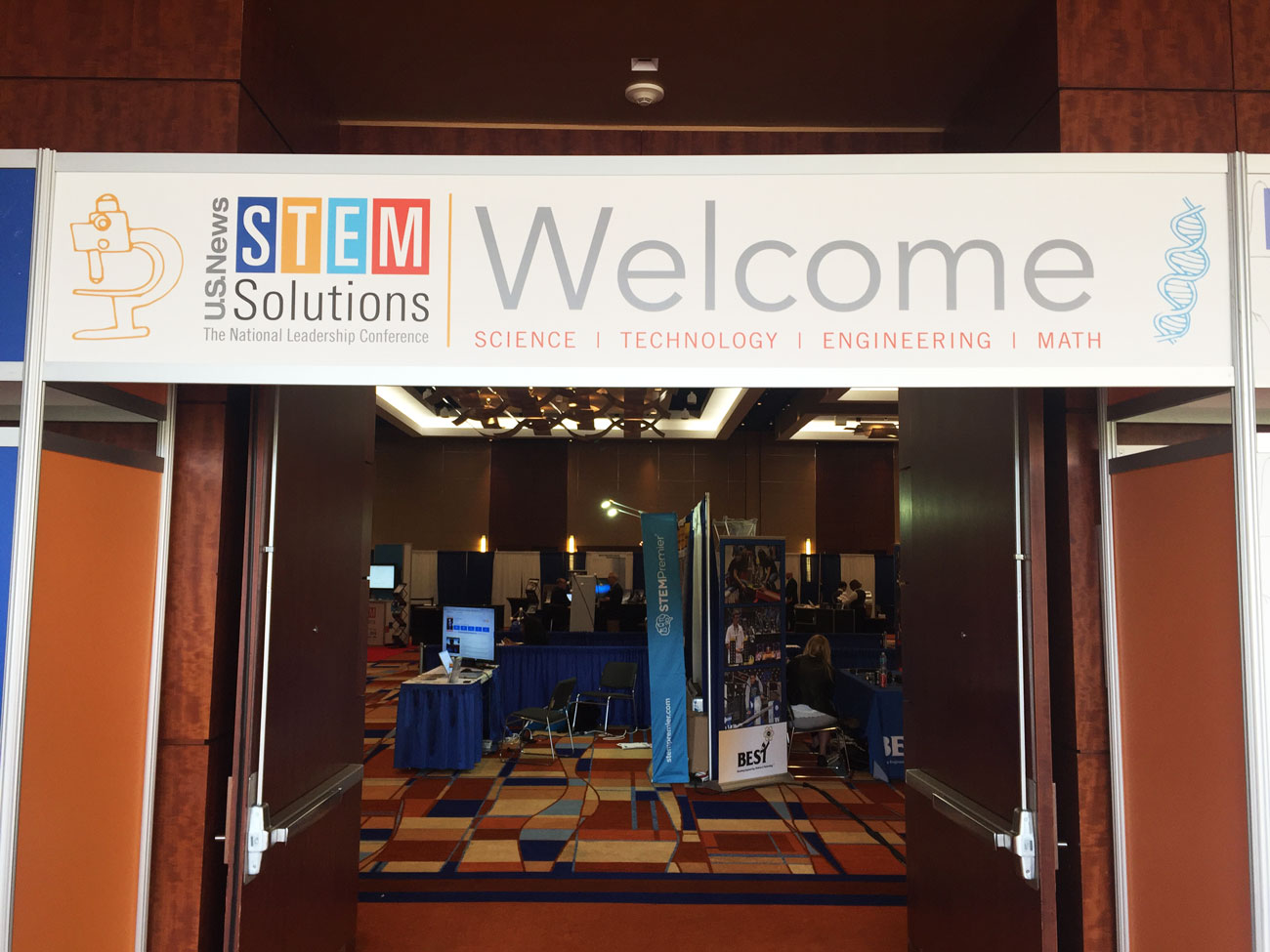BALTIMORE — Apprenticeship programs don’t only benefit employers looking for the adaptable skills they need in their workforce. They can remarkably transform the science, technology, engineering and math industries by providing underrepresented minorities the technical and leadership skills they need to succeed in STEM, educators and employers said Thursday at “The Return of the Apprenticeship,” a session at the U.S. News STEM Solutions Conference.
Mark Vaughn has had a 28-year career with Corning, an innovative manufacturer of specialty glass, ceramics and optical physics. Starting as an intern in 1986, Vaugh said he returned to the company two years later as an entry-level technician, jumping on different opportunities his way up to the manager of Corning’s Technical Talent Pipelining program.
“I consider myself in some ways to be a living example of the importance of pipelining and apprenticeships,” he said.
At Corning, 58 percent of their pipeline graduates are underrepresented minorities and women. Providing individuals with debt-free, on-the-job training, benefits, a salary, and eventual fulltime technician roles can dramatically alter the STEM landscape, he said. The sole source for African-American talent is the local Southern Tier region, Vaughn added. By first partnering with area institutions, apprenticeship programs like Corning’s Pipeline can demonstrate the effectiveness of apprenticeships, before moving more broadly and encouraging other organizations to do the same.
Within the rapidly growing tech industry, companies are struggling to find the talent to fill brand new and growing roles, said Brendan Lind, executive director of LaunchCode, a St. Louis-based non-profit that offers technology-based apprenticeships and job placement.
Most companies still focus on a potential employee’s professional connections and prior experience, Lind said. Many people who don’t have economic access to tertiary education and unpaid internships are struggling to find those experiences and connections to improve their skills. LaunchCode is purely competence- and skills-based, he added.
“What we work to do is to get companies to agree to hire someone they wouldn’t normally hire,” Lind said. “You can, on your own, get 75 percent of the way, but you need that on-the-job experience.”
Established in 2013, LaunchCode partners with institutions like Harvard University to provide education and mentoring to underserved communities. This “democratized” access to training provides the foundational, technological skills and individualized guidance people need to sell themselves to employers. Ninety percent of people put through apprenticeships how have full-time jobs, Lind said.
High retention rates for graduates of apprenticeship programs aren’t unique. Competency-based learning means people are graduating with real skills. For those who have come through Corning’s technical pipeline program, 100 percent have been placed and remain at the company, Vaughn said.
At Newport News Shipbuilding’s Apprentice School, students learn craftsmanship, scholarship and leadership. This comprehensive program ensures they can be easily integrated into leadership teams upon graduation and take advantage of all opportunities for advancement, said Director of Education Everett Jordan. There is no requirement for graduates to remain at Newport, however 82 percent have. Creating a workforce that has largely experienced the success of apprenticeships ensures the continuing development of the program, Jordan added.
“Half of our leadership are products of our school, they get it,” he said. “They understand the value.”


